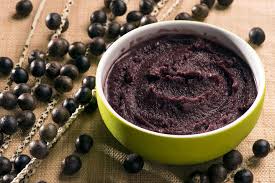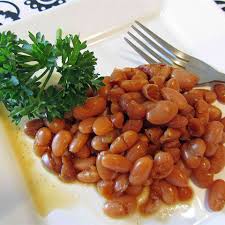Exploring the Delightful World of Frozen Acai Packets

The Benefits of Frozen Acai Packets
Frozen acai packets have become increasingly popular in recent years due to their numerous health benefits and versatility. Acai berries are small, dark purple fruits that grow on the acai palm tree in the Amazon rainforest. They are packed with antioxidants, fiber, and essential nutrients, making them a superfood that can boost overall health.
One of the main advantages of frozen acai packets is their convenience. They come pre-portioned and ready to use, making them perfect for quick and easy smoothie bowls, smoothies, or acai bowls. Simply blend the frozen acai packet with your favorite fruits, vegetables, and liquids to create a delicious and nutritious treat.
In addition to being convenient, frozen acai packets are also incredibly nutritious. They are rich in antioxidants that help protect your cells from damage caused by free radicals. Antioxidants can also help reduce inflammation in the body and improve overall immune function.
Furthermore, acai berries are high in fiber, which is essential for digestive health. Fiber helps regulate digestion, prevent constipation, and promote a healthy gut microbiome. Incorporating frozen acai packets into your diet can help you meet your daily fiber needs while enjoying a tasty treat.
In conclusion, frozen acai packets are not only convenient but also packed with essential nutrients that can benefit your overall health. Whether you enjoy them in smoothies or bowls, adding frozen acai packets to your diet is an easy way to boost your antioxidant intake and support optimal well-being.
9 Essential Tips for Making the Most of Frozen Acai Packets
- Store the frozen acai packets in the freezer until ready to use.
- Thaw the desired amount of acai by running the packet under water for a few seconds.
- Blend the thawed acai with other fruits or liquids to create a delicious smoothie bowl.
- Add toppings like granola, fruits, nuts, and seeds to enhance the flavor and texture of your acai bowl.
- Experiment with different combinations of ingredients to find your favorite acai bowl recipe.
- Use frozen acai packets as a base for smoothies or desserts for added antioxidants and nutrients.
- Avoid refreezing thawed acai to maintain its quality and taste.
- Check the packaging for any specific instructions on how to prepare or use the frozen acai packets.
- Enjoy your homemade acai bowls as healthy and refreshing snacks or meals.
Store the frozen acai packets in the freezer until ready to use.
To ensure the freshness and quality of your frozen acai packets, it is recommended to store them in the freezer until you are ready to use them. Keeping the packets frozen helps maintain their nutrients and flavor, ensuring that you get the best experience when incorporating them into your smoothies or acai bowls. By storing the frozen acai packets properly, you can enjoy the convenience and health benefits they offer whenever you’re ready for a delicious and nutritious treat.
Thaw the desired amount of acai by running the packet under water for a few seconds.
To thaw the desired amount of acai from the packet, simply run it under water for a few seconds. This quick and easy method allows you to soften the frozen acai to your preferred consistency, making it ready to use in your favorite recipes like smoothie bowls or smoothies. Thawing the acai under running water is a convenient way to enjoy this nutritious superfood without compromising its quality or flavor.
Blend the thawed acai with other fruits or liquids to create a delicious smoothie bowl.
To enjoy the full flavor and benefits of frozen acai packets, a great tip is to blend the thawed acai with other fruits or liquids to create a delicious smoothie bowl. By combining the rich, antioxidant-packed acai with your favorite fruits and liquids, you can customize your smoothie bowl to suit your taste preferences while reaping the nutritional rewards of this superfood. Whether you prefer a tropical blend with pineapple and coconut water or a classic combination with berries and almond milk, blending thawed acai opens up endless possibilities for creating a nutritious and satisfying treat.
Add toppings like granola, fruits, nuts, and seeds to enhance the flavor and texture of your acai bowl.
Enhance the flavor and texture of your acai bowl by adding a variety of toppings such as crunchy granola, fresh fruits, nutritious nuts, and seeds. These toppings not only add a delightful contrast in textures but also bring a burst of flavors that complement the rich and creamy base of the acai bowl. The combination of sweet, crunchy, and chewy elements creates a satisfying and well-balanced treat that is both delicious and nourishing. Experiment with different toppings to customize your acai bowl to your liking and enjoy a delightful culinary experience with every bite.
Experiment with different combinations of ingredients to find your favorite acai bowl recipe.
To make the most of your frozen acai packets, try experimenting with various combinations of ingredients to discover your ideal acai bowl recipe. Mixing and matching fruits, nuts, seeds, granola, and toppings can add a personal touch to your creation and cater to your taste preferences. Whether you prefer a tropical blend with mango and coconut or a classic combination with berries and almond butter, exploring different flavor profiles can elevate your acai bowl experience and make it uniquely yours.
Use frozen acai packets as a base for smoothies or desserts for added antioxidants and nutrients.
Using frozen acai packets as a base for smoothies or desserts is a fantastic way to boost the antioxidant content and nutrient profile of your creations. Acai berries are known for their high levels of antioxidants, which can help protect your cells from damage and support overall health. By incorporating frozen acai packets into your recipes, you can easily enhance the nutritional value of your smoothies or desserts while enjoying the delicious flavor of this superfood.
Avoid refreezing thawed acai to maintain its quality and taste.
To maintain the quality and taste of frozen acai packets, it is important to avoid refreezing thawed acai. Once the acai has been thawed, refreezing it can compromise its texture and flavor. To ensure that you enjoy the best possible taste experience, it is recommended to use the thawed acai promptly and avoid refreezing it. This simple tip can help preserve the integrity of the acai and ensure that you get the most out of its nutritional benefits.
Check the packaging for any specific instructions on how to prepare or use the frozen acai packets.
When using frozen acai packets, it is important to check the packaging for any specific instructions on how to prepare or use them. Following the guidelines provided can help ensure that you get the best flavor and nutritional benefits from the acai packets. Some brands may recommend thawing the packet slightly before blending, while others may suggest adding specific ingredients for optimal taste. By paying attention to the instructions on the packaging, you can make the most out of your frozen acai experience and enjoy a delicious and nutritious treat.
Enjoy your homemade acai bowls as healthy and refreshing snacks or meals.
Indulge in the goodness of homemade acai bowls as nutritious and revitalizing snacks or meals. By incorporating frozen acai packets into your culinary creations, you can savor the refreshing flavors while reaping the health benefits of this superfood. Whether enjoyed as a quick pick-me-up during the day or as a satisfying meal option, homemade acai bowls offer a delicious way to nourish your body and satisfy your taste buds.


